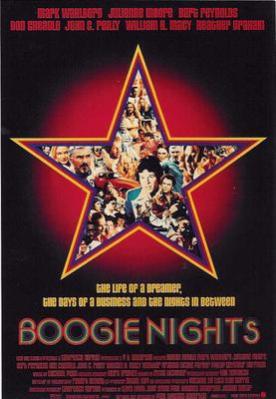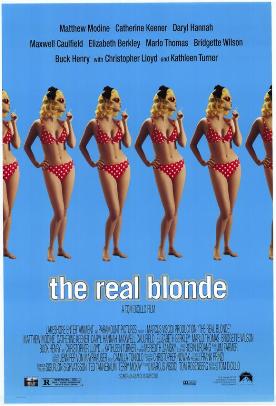Wonderland
Wonderland by Michael Winterbottom is the second British film this year to adapt to London the ambitious American treatment of Los Angeles by Robert Altman in Short Cuts or the San Fernando Valley by Paul Thomas Anderson in Magnolia. The other was Beautiful People by Jasmin Dizdar which, though not a bad film, lost its focus by losing its sense of place as it whisked us back and forth from the British capital to the war in the Balkans. Winterbottom uses the cross-cutting technique of the American films much more effectively and succeeds, in some ways better than they do, in conveying by it the vastness and variety of the city, the “Wonderland” of the title. There are not so many people in so many different places as there are in Altman’s film or the big themes that there are in Anderson’s, but Winterbottom’s concentration on the smallness of the lives he chronicles is more appropriate to the task of portraying the bigness of the city.
For the film is also thematically unified by being a meditation on loneliness, and each of its several linked but separate stories, all unfolding at the same time, present us with a different sort of case study. Nadia (Gina McKee) is looking for love through the personal ads; her sister Debbie (Shirley Henderson), the divorced mother of young Jack (Peter Marfleet), is working out her hatred of Jack’s father, Dan (Ian Hart), in furious promiscuity. Their sister, Molly (Molly Parker), is married to Eddie (John Simm) and is about to give birth to their first child, but there is trouble in the marriage and a breakdown of communication between them. The three girls’ parents, Eileen (Kika Markham) and Bill (Jack Shepherd), are trapped in a loveless marriage which neither seems to have the gumption to get out of and estranged from their only son, Darren (Enzo Cilenti), who is celebrating his birthday by going to a posh hotel and having wild sex with his girlfriend.
Meanwhile, the guy across the street from Bill and Eileen, Franklyn (David Fahm), is depressed and lonely and even more depressed to be told by his mother to get out more. He has a crush on Nadia, but she doesn’t get home much and hardly notices him. Dan is a ne’er-do-well, a shady businessman of some sort in constant danger of insolvency. His failure with Debbie seems to be symptomatic of his fortunes in love, and when he turns up on Nadia’s list of dating prospects he is surprised to find that she laughs at the very idea of going out with him. He spends most of his time in the pub, even when it is his weekend with Jack, whom he fobs off with a video of Dumb and Dumber.
“I’ve seen it,” says Jack.
“Funny, isn’t it?”
“Yeah, it’s funny.” The boy feels abandoned by both parents and later wanders off on his own while dad is sleeping one off, ending up at the bonfire night fireworks — where he is mugged. Debbie becomes even more furious with Dan for leaving the boy unattended.
The film does not entirely resist the temptation to end on an up-beat note by casting a little sunshine into these sad, blighted lives, and a reconciliation between Eddie and Molly when they meet in the hospital where the former has been taken after a motorbike accident and the latter to have her baby produces that title moment when Molly announces that the little girl is to be called Alice — the name that Eddie had proposed — “like in Wonderland.” But what we are more likely to take away from it, I think, is the scene in which Eddie has delayed his arrival home from work in order to rehearse his speech to Molly about why, on the point of their child’s birth, he is determined to quit his job as a kitchen salesman. “I know what you’re going to say. Don’t be angry. I know it’s not the best time . . . But think of the drawbacks of hanging on to a job you hate.”
He goes on to imagine a future in which he would blame her for his unhappiness, take to drink, take a lover, buy a gun and take her and the kids hostage. “The police will beg me to be reasonable, but no, it’s too late,” he moans. “Another statistic. A news item in the News of the World.” On the one hand the self-dramatization here is quite comic, as is the fact that, when he finally gets home, Molly is in bed and he tells her nothing. On the other hand, it comes in the context of so much mis-communication and non-communication between men and women that its pathos leaves its mark as surely as it does after Nadia’s sexual encounter with Tim (Stuart Townsend) who, as she can’t quite admit to herself, is much less fond of her than she is of him.
The same is true with Eileen’s hatred of the next door neighbor’s constantly barking German shepherd, which becomes intertwined (as everything does with her) with her hatred of her husband. “Aren’t you going to do anything?” she asks him about the barking dog. “Doesn’t it bother you?” And then, answering her own question, adds: “‘Course it bothers you, but you’re too pathetic to do anything about it.”
“You’re the one who’s f***ing pathetic,” he calls out perfunctorily from his armchair as he watches a nature show on television about how, in one species of spider, the female kills the male after mating. Into his life, as into that of each of his daughters, comes a momentary vision of the sexual happiness he has learned to do without. Having locked himself out of the house while Eileen is off playing bingo, he goes across the street to Franklyn’s mother, who invites him in, gives him a drink and dances with him — something he obviously hasn’t done for a long time, if ever. Her openness and affection, however, only embarrass him, and he excuses himself. “I should go now,” he says. Eileen must be home by now. I should go now.” That night he tries to caress Eileen in bed, but she jumps up, crying: “I can’t stand you!”
Obviously, so much unhappiness is not to be easily dispelled, but in the circumstances merely giving Bill the opportunity to speak his mind to Eileen and get a phone message from the long out-of-touch Darren, or having Nadia exchange a friendly greeting with Franklyn, seems like enough to prevent the film from becoming merely a purposeless wallow in misery. Whether it is also enough to accomplish the larger aims implied by the title is more doubtful, but the film is at the least a remarkable achievement.
Discover more from James Bowman
Subscribe to get the latest posts to your email.







